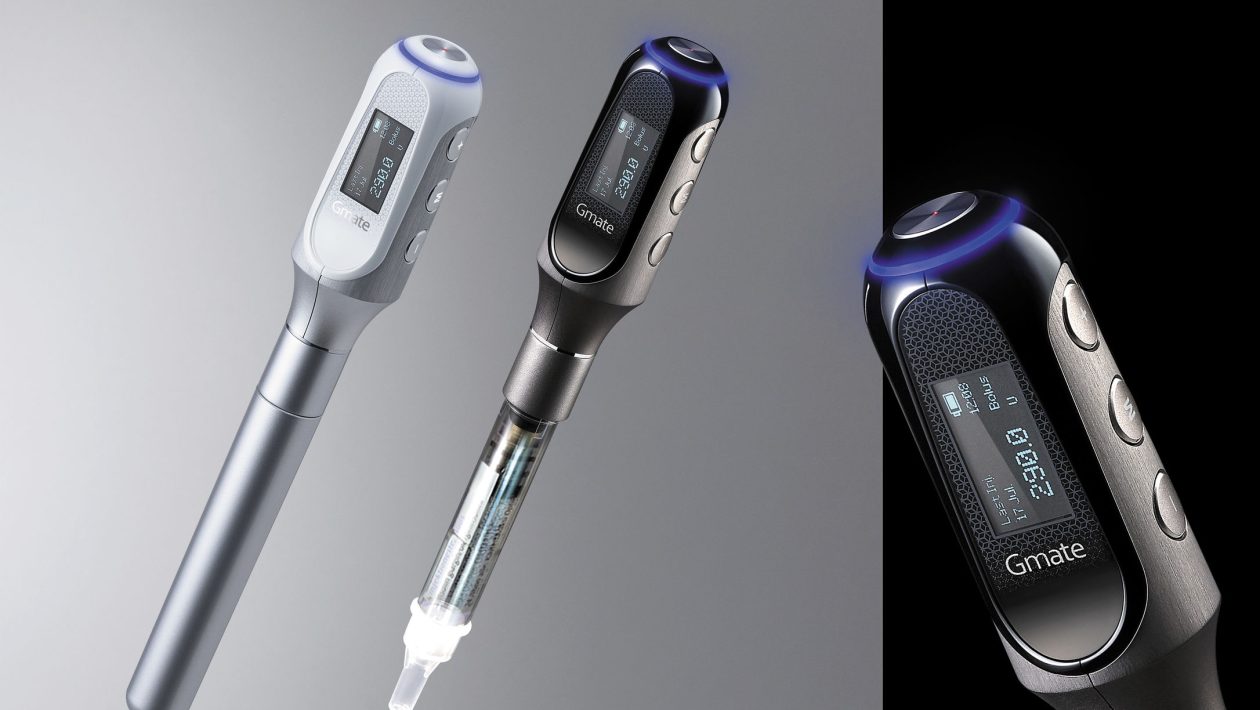As digital innovation continues to reshape diabetes care, leading voices in health technology are reimagining how chronic conditions can be managed more intuitively and proactively. Among them is Joe Kiani, Masimo and Willow Laboratories founder, whose career has centered on improving patient safety through real-time, non-invasive solutions. His latest initiative, Nutu™, is a digital health platform designed to empower individuals with personalized, science-backed insights that drive small, sustainable lifestyle changes, helping users reduce or better manage chronic disease.
Reducing is just one part of the story. As part of Willow Laboratories’ broader push to modernize care, smart insulin pens are emerging as another breakthrough. These intelligent devices go beyond medication delivery by offering real-time tracking, personalized prompts, and seamless integration with broader digital health platforms. By reducing guesswork and increasing day-to-day confidence, they’re helping people move from reactive diabetes management to more informed, supported decision-making, one dose at a time.
What Makes an Insulin Pen “Smart”
Traditional insulin pens deliver medication but offer no way to track it. It leaves users and their care teams dependent on memory or manual logs to understand dosing patterns. Smart insulin pens close that gap by automatically recording when and how much insulin is administered. Many of these devices sync with mobile apps to display real-time dosing history and identify trends over time.
In addition to logging doses, smart pens can alert users if a dose is missed, calculate safe intervals between injections, and even integrate with glucose monitoring data. The goal is to make insulin management safer, more consistent, and easier to navigate. For many users, this added visibility helps reduce uncertainty and builds confidence in daily decision-making.
Improving Engagement Without Adding Burden
Managing diabetes often feels like a constant balancing act, with users juggling food choices, physical activity, medications, and stress. It can quickly become overwhelming. Smart insulin pens help lighten that load by removing some of the uncertainty. By automatically tracking doses and offering timely reminders, such as when a dose is missed or a correction might be needed, they provide reassurance without criticism. This kind of support encourages consistency and helps build healthy habits in a way that feels manageable and judgment-free.
Beyond tracking, platforms are finding new ways to make insulin data even more useful. When a smart pen logs a dose, integrated systems can cross-reference that event with other health metrics like recent glucose trends, sleep quality, or physical activity. Based on those combined insights, the platform can suggest small, timely actions, such as a light walk after a dose or a balanced snack before bed, making daily diabetes care more intuitive and responsive.
Reducing the Risk of Missed or Mistimed Doses
Missing an insulin dose or injecting too close to a previous one can significantly disrupt blood sugar stability. Smart insulin pens help reduce this risk by sending personalized reminders and alerts when the timing between doses may be off. These tools not only ensure that users follow their prescribed regimen but also help them avoid potentially dangerous overlaps or gaps in treatment. By reinforcing dosing accuracy, they bring greater safety and peace of mind into day-to-day diabetes care.
Many smart pens can be customized with timing rules and alerts that reflect the user’s routine, which is especially useful for those who require multiple injections each day. When integrated with a broader health platform, these dosing records can also prompt lifestyle guidance tailored to the user’s current condition.
Encouraging Ownership Through Data
One key benefit of smart pens is that they allow users to see how their actions influence outcomes. When insulin delivery, glucose response and behavior are all visible in one place, patterns begin to emerge. People learn how certain meals affect their insulin needs or how stress changes their glucose response. That kind of insight turns data into understanding. And when users understand, they’re more likely to stay engaged. Smart tools encourage ownership, not just adherence, by making progress feel measurable.
Complicated systems create friction. Trust grows when tools work smoothly in the background, supporting users without requiring constant input. Smart insulin pens are often designed to be easy to use, quick to sync, and discreet in their alerts. It takes this a step further by translating insulin dosing into context.
Integrating the Human Side of Diabetes
Technology plays a key role in diabetes management, but users are still people, busy, emotional, and affected by more than numbers. Smart insulin pens succeed when they are responsible for reality. Early feedback from Nutu users shows appreciation for features that respect routines and acknowledge human error. These features include reminders that feel helpful instead of demanding, messages that say, “Let’s try again tomorrow,” not just “You missed a dose.”
Joe Kiani, Masimo founder, explains, “Some of the early users that have been giving us feedback are saying really positive things about what it’s done for them.” His vision centers on creating tools that give people a sense of control over their health. These tools are designed to support, guide, and empower without micromanaging or overwhelming the user.
Empowering More Than Just the Tech-Savvy
Smart insulin pens are designed for everyone, not just digital natives. With simple onboarding, intuitive displays, and clear guidance, they are accessible to people across age groups and comfort levels with technology. The platform reinforces this inclusivity by providing behavior-based prompts that match individual routines and preferences.
Whether it’s a teenager navigating Type 1 diabetes or an older adult adjusting to a new Type 2 diagnosis, the system adapts to meet users where they are. This flexibility ensures that more people can benefit from advanced support, making diabetes management feel approachable and manageable.
A Smarter Path Forward
As smart insulin pens continue to improve, their integration with broader digital health platforms is creating a more seamless and supportive experience. Rather than juggling multiple apps or relying on memory, users are beginning to receive unified guidance drawn from real-time insights across behavior, physiology, and lifestyle.
This shift simplifies diabetes management while also making it more human, personal, and effective. These tools show that lasting impact does not come from flashy features or complexity, but from practical, well-timed support that fits into daily life. When technology aligns with real needs, it empowers better choices, builds confidence, and supports health in ways that are both meaningful and sustainable.







